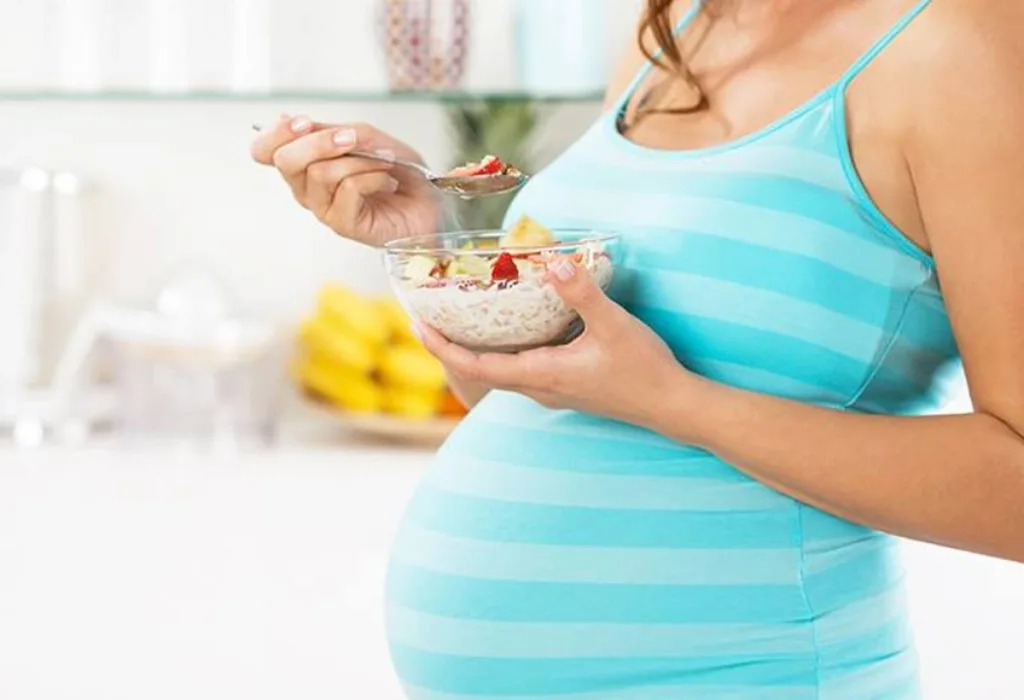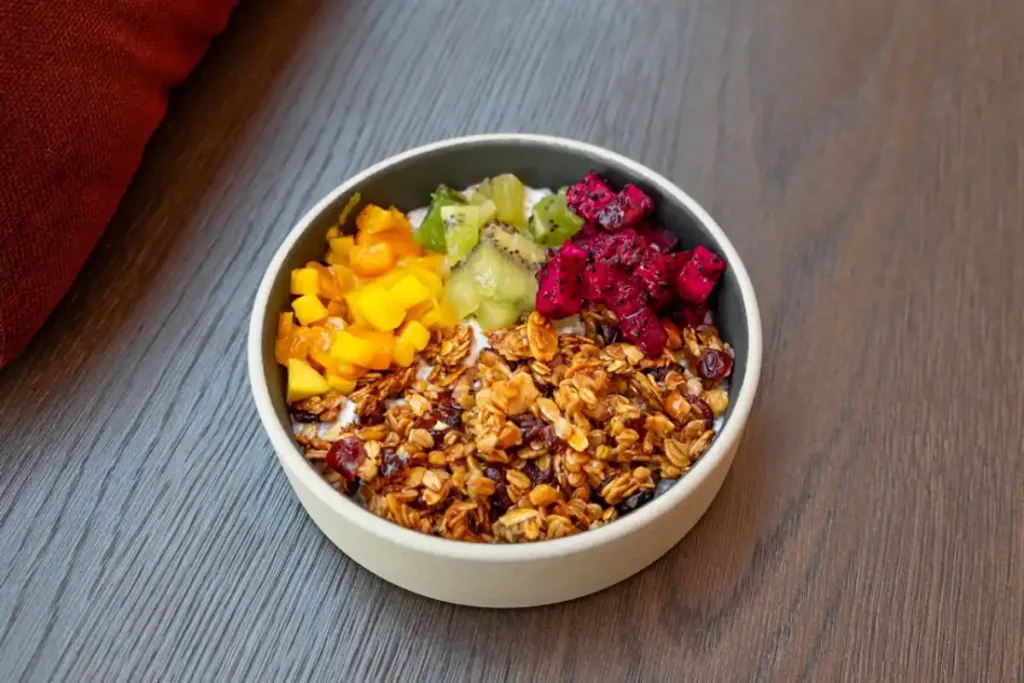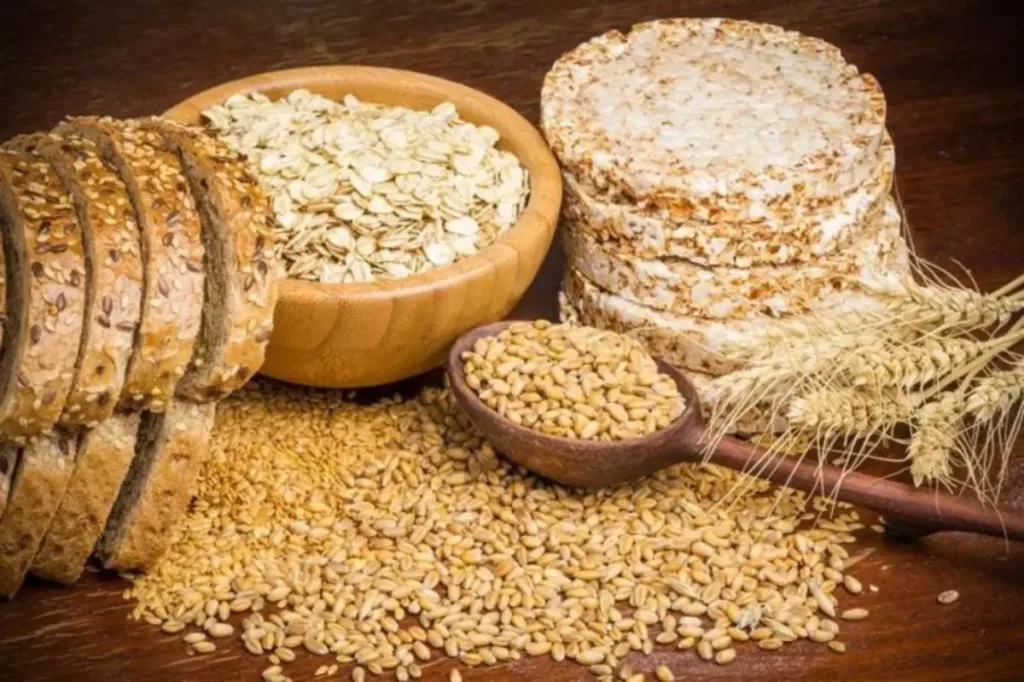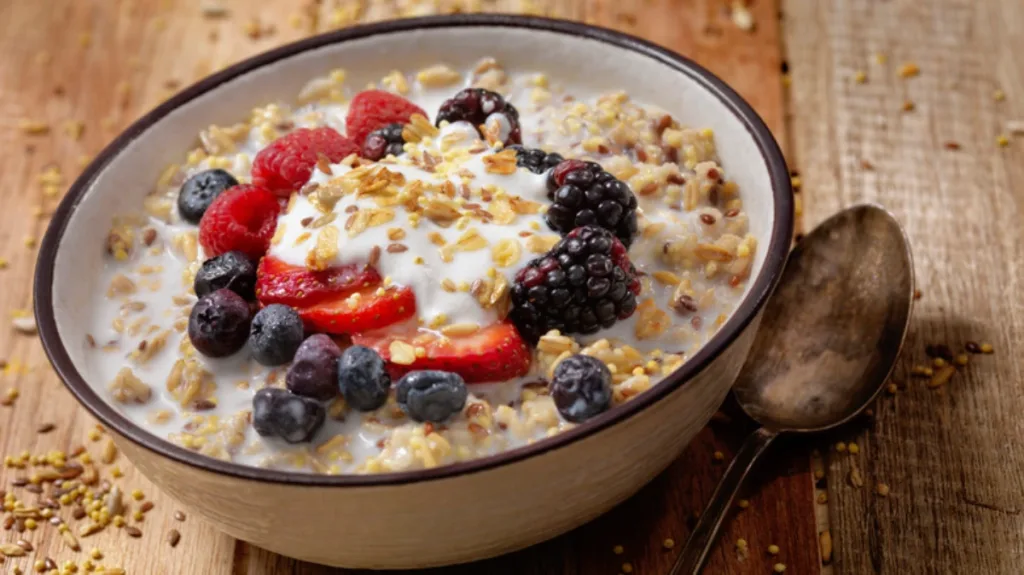Craving cereal during pregnancy is a common experience for many expectant mothers.
What drives these cravings? Hormonal changes play a significant role, along with the body’s heightened nutritional needs during this transformative time.
While cereal can provide essential benefits, it’s also important to be aware of potential risks such as added sugars and contaminants.
This article will explore the reasons behind these cravings, the advantages and disadvantages of cereal, and some delicious alternatives to help maintain a nutritious and satisfying diet.
The Meaning of Pregnancy Cravings
Pregnancy cravings can sometimes offer insights into an expectant mother’s emotional, physical, and nutritional needs. Hormonal changes during pregnancy often trigger cravings, and unusual combinations like pickles with ice cream or other “weird” pairings may seem odd but are quite common. These cravings can sometimes signal nutrient deficiencies, such as a craving for red meat indicating an iron deficiency, or salty foods suggesting the need for more sodium. Emotional changes and the body’s evolving nutritional needs, especially in the third trimester, can also play a role in shaping cravings, making them an important aspect of the pregnancy experience.
Pregnancy cravings typically begin in the first trimester and can evolve as the pregnancy progresses. Early on, expectant mothers may experience both cravings and food aversions, with many reporting an increased desire for certain foods by the second trimester. As hormonal and physical changes intensify, cravings may become more pronounced, often reflecting the body’s shifting nutritional needs throughout the different pregnancy stages. While cravings can vary, they generally peak during the second trimester and may taper off as the pregnancy approaches the third trimester.
Common Pregnancy Cravings
During pregnancy, it’s common for women to experience cravings for a variety of foods, such as meat, dairy, fruits, vegetables, cereal, and spicy foods. These cravings may stem from hormonal changes and the body’s increased need for certain nutrients like calcium, fiber, folic acid, potassium, and protein. For example, a craving for dairy may signal a calcium deficiency, while a desire for fruits rich in vitamin C can be linked to the body’s need for antioxidants. In some cases, cravings may be influenced by nutritional deficiencies or imbalances, and it’s important to avoid foodborne illnesses by making safe food choices. Unusual cravings, like those for non-food items (pica), can also occur and should be discussed with a healthcare provider.
Many myths and gender predictor games suggest a correlation between specific pregnancy cravings and the gender of the baby, but there is no scientific evidence to support these claims. Some believe that cravings for sweet foods indicate a girl, while salty or spicy cravings point to a boy. However, these beliefs are largely based on cultural traditions rather than biology. Pregnancy cravings are primarily driven by hormonal changes and nutritional deficiencies, rather than the baby’s gender. While fun to explore, these cravings are not reliable indicators of whether you’re expecting a boy or a girl.
Maintaining a Healthy Pregnancy
Maintaining a healthy pregnancy involves following a balanced diet, managing cravings wisely, and seeking expert care. While it’s normal to have cravings, it’s essential to consume nutrient-rich foods that support both the mother’s and baby’s health. Balanced calorie intake with healthy options can help manage weight gain and ensure proper nutrition. Regular check-ins with a health care provider or specialists can help monitor well-being and address any concerns. Additionally, participating in childbirth classes and planning for postpartum care are crucial steps in preparing for a healthy pregnancy journey and beyond.
Why Pregnant Women Crave Cereal

Pregnancy is a distinctive journey that often leads to unexpected cravings, and it’s not uncommon for many women to find themselves particularly drawn to cereal. This craving can stem from various factors, including hormonal changes, increased nutritional needs, and the comfort that comes with familiar breakfast foods.
For many, cereal serves not only as a quick meal but also as a source of essential nutrients that can help alleviate morning sickness and provide sustained energy throughout the day. By understanding these cravings, individuals can make informed food choices that support both maternal health and the development of the baby.
The Role of Hormones
Hormonal fluctuations during pregnancy play a crucial role in influencing food cravings, including a notable inclination towards cereals. As levels of estrogen and progesterone rise, they can trigger changes in appetite and cravings, often resulting in specific food preferences that might seem unusual outside the context of pregnancy. These hormones can enhance sensitivity to certain flavors and textures, making foods like cereal appear particularly appealing.
This heightened sensitivity can also impact mood, contributing to the emotional landscape during pregnancy. For many individuals, fluctuating hormones may prompt mood swings, leading to a strong desire for comfort foods that can provide emotional support. It is intriguing to consider the psychology behind these cravings; women may suddenly find themselves attracted to specific cereals, perhaps due to their nostalgic value or the comforting crunch they provide.
Nutritional Needs During Pregnancy
The nutritional needs of pregnant women are significantly increased, making it essential to select foods that are rich in vitamins, minerals, and fiber, such as cereal. During pregnancy, there is a heightened requirement for specific nutrients, including iron and folic acid, to support both the mother’s health and the development of the baby. Cereal can serve as an excellent choice, providing essential nutrients that contribute to a balanced diet and the energy needed for daily activities.
Additionally, whole grain cereals are frequently fortified with extra vitamins and minerals, which can further enhance a pregnant woman’s diet. The high fiber content found in many cereals is beneficial for digestion, an area that many expectant mothers may find challenging. Fiber plays a crucial role in preventing constipation, a common discomfort during pregnancy.
Cereals rich in B vitamins are particularly important as they assist in developing the baby’s nervous system and can help reduce the risk of neural tube defects. By including such nutrient-dense options in their meals, mothers-to-be can more effectively meet their dietary needs while also nurturing their growing child.
Further reading: Pregnancy and Olive Cravings: Here’s the Reason & Best Tips!
The Benefits of Eating Cereal During Pregnancy

Consuming cereal during pregnancy presents a variety of benefits that cater to the specific nutritional needs of expectant mothers. Whole grain cereals not only supply essential nutrients but also serve as a convenient choice for those hectic mornings.
Many are fortified with vital vitamins and minerals that support the development of the baby, making them a key component of a healthy pregnancy diet. Additionally, the fiber found in cereals helps maintain digestive health, which can be especially advantageous during this period.
Meeting Nutritional Requirements
Cereal can effectively meet the nutritional requirements of pregnant women by serving as a rich source of vitamins, minerals, and dietary fiber. Many cereals are fortified with essential nutrients such as iron and folic acid, which are vital for supporting both maternal health and fetal development. Whole grain cereals can significantly contribute to daily fiber intake, which may help alleviate common pregnancy symptoms like constipation.
The variety of cereals available on the market often caters to specific dietary needs, making it easier for expectant mothers to find suitable options. For instance, cereals that are high in iron can help combat anemia, a common condition during pregnancy, while those rich in folic acid play a crucial role in preventing neural tube defects in the developing fetus. Additionally, selecting cereals enriched with B vitamins can support energy levels and overall well-being.
The fiber content found in oat or bran-based cereals aids digestion and promotes a feeling of fullness, which can be beneficial for managing weight gain during this important time.
Easy and Convenient Snack Option
Cereal is a practical and convenient snack option for pregnant women, offering a quick energy boost when needed. Given the demands of busy schedules and fluctuating appetites, having accessible snack choices is crucial for maintaining consistent nourishment. A bowl of cereal can be prepared in just a few minutes, making it an excellent option for those experiencing cravings or dips in energy throughout the day.
This straightforward snack not only provides fuel for the body but also helps with hydration, especially when enjoyed with milk or yogurt. For individuals balancing work, family, and self-care, keeping a selection of healthy cereals on hand can simplify meal preparation and reduce stress.
Choosing whole grain varieties is beneficial as they provide a good source of fiber, which promotes digestion and helps with feelings of fullness. Additionally, incorporating fresh fruits or nuts can enhance both the flavor and nutritional value, resulting in a well-rounded snack that supports overall health while accommodating the demands of a busy lifestyle.
Further reading: Why Pregnant Women Crave Eggs: Nutrition and Health Insights
Possible Risks of Consuming Cereal During Pregnancy

Cereal can certainly be a valuable addition to a pregnancy diet; however, it’s important for expectant mothers to be aware of the potential risks associated with its consumption.
Many cereals available today contain high levels of added sugars and calories, which can lead to weight gain and increase the risk of gestational diabetes if consumed in excess.
Therefore, it’s crucial to choose cereals carefully, ensuring they fit within a healthy diet and effectively manage cravings.
Added Sugars and Calories
One of the key concerns regarding cereal consumption during pregnancy is the presence of added sugars and excess calories in many products. A high sugar intake can lead to unnecessary weight gain and increase the risk of developing gestational diabetes. Therefore, it is essential to read labels carefully and choose cereals that are lower in added sugars.
The implications of selecting cereals loaded with sweeteners are considerable. Such choices can not only exacerbate weight issues but also disrupt the delicate balance of nutrients that are vital for both the mother and the developing fetus. It’s important for expectant mothers to consider the potential long-term effects on their health, including an increased likelihood of postpartum weight retention and metabolic complications.
Instead, opting for cereals made from whole grains with minimal additives can provide the necessary fiber and nutrients without the unwanted added sugars. Brands that focus on natural ingredients can be a more favorable choice, ensuring that both the mother and baby receive the essential support they need during this critical time.
Risk of Contaminants
Another risk to consider when consuming cereal during pregnancy is the presence of potential contaminants, which can impact the overall nutritional value. It is essential for pregnant women to prioritize food safety to minimize exposure to harmful substances that may be found in certain processed cereals.
Contaminants such as pesticides, heavy metals, and mycotoxins can remain in these food products, posing significant risks not only to maternal health but also to the developing fetus. These harmful substances can interfere with the absorption of essential nutrients, leading to deficiencies that could negatively affect both the mother’s well-being and the baby’s growth.
As a result, selecting organic or minimally processed options and carefully reading labels are critical steps for pregnant women. These choices can help ensure that their diets support optimal health and development during this important period.
Alternatives to Cereal for Pregnant Women

For individuals seeking to diversify their diet, there are numerous nutritious alternatives to cereal that can effectively support the nutritional needs of pregnant women. Options such as oatmeal, granola, and rice cereals present a variety of textures and flavors while delivering essential nutrients.
These alternatives can be enhanced with healthy fats and proteins, creating a balanced snack that satisfies cravings without compromising overall wellness.
Other Nutritious Snack Options
There are many nutritious snack options available beyond cereal that can cater to the unique cravings and dietary needs of pregnant women. Snacks such as yogurt, nuts, and fruits not only provide energy but also deliver healthy fats and protein essential for maternal health.
Additionally, whole grain toast topped with avocado is a delightful way to incorporate fiber and healthy fats into the diet, while cottage cheese paired with pineapple offers a refreshing mix of protein and vitamins. Hummus served with vegetable sticks is another excellent choice, providing a good source of plant-based protein and fiber, which can enhance satiety and aid digestion.
Smoothies made from leafy greens, bananas, and almond milk not only offer hydration but also pack a wealth of essential nutrients, making them perfect for those long, demanding days. Each of these options demonstrates that maintaining a well-rounded diet during this crucial time can be both enjoyable and beneficial.
Homemade Cereal Recipes
Creating homemade cereal can be a delicious and nutritious alternative, enabling pregnant women to have control over the ingredients and nutritional value. By incorporating whole grains, nuts, and natural sugars, one can craft a cereal that is rich in fiber and essential nutrients, perfectly tailored to individual dietary preferences.
This versatility not only enables women to include their favorite flavors but also ensures that each bowl is filled with vital vitamins and minerals. For instance, one might choose oats as a base and add seeds, dried fruits, or even a touch of dark chocolate for a delightful twist. This level of customization enhances the flavor and addresses unique nutritional needs, whether it’s a boost of protein or additional healthy fats.
Homemade cereal transcends being just a meal; it becomes a creative expression of health goals and personal tastes.
Frequently Asked Questions
Why do pregnant women crave cereal?
Pregnant women often crave cereal due to hormonal changes, nutritional needs, and increased appetite.
Is it safe to eat cereal during pregnancy?
Yes, cereal can be a healthy and nutritious option for pregnant women as long as it is consumed in moderation and not in place of whole foods.
What nutrients do pregnant women get from eating cereal?
Cereal is a good source of iron, folic acid, and other vitamins and minerals that are important for the healthy development of the baby and the mother's body during pregnancy.
Should I be concerned if I am craving cereal during pregnancy?
Craving cereal during pregnancy is very common and usually not a cause for concern. However, if you are experiencing intense cravings or cravings for non-food items, it is important to speak to your healthcare provider.
What are some healthy options for cereal during pregnancy?
Look for cereals that are high in fiber, low in sugar, and fortified with important vitamins and minerals. Whole grain and gluten-free options are also good choices.




